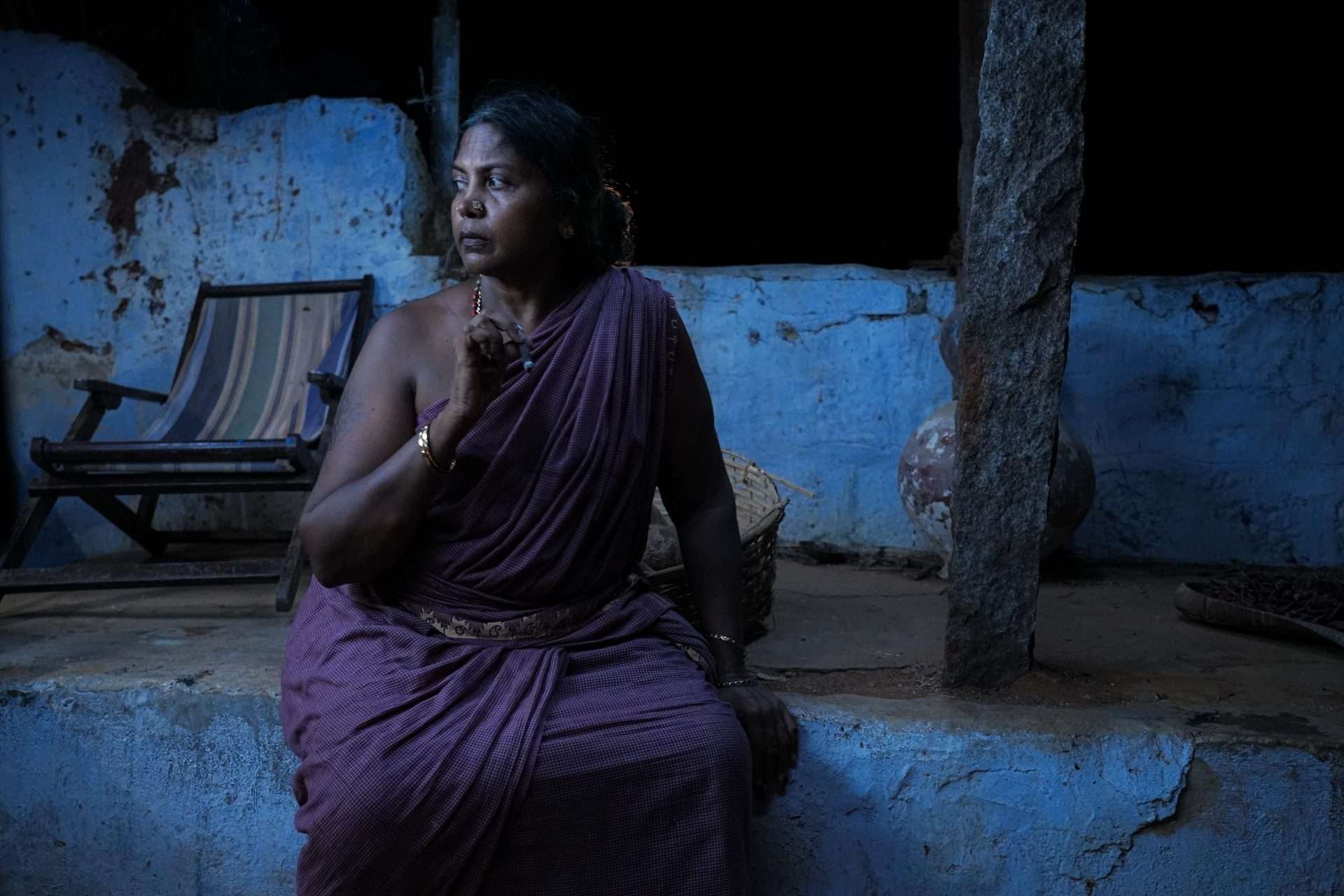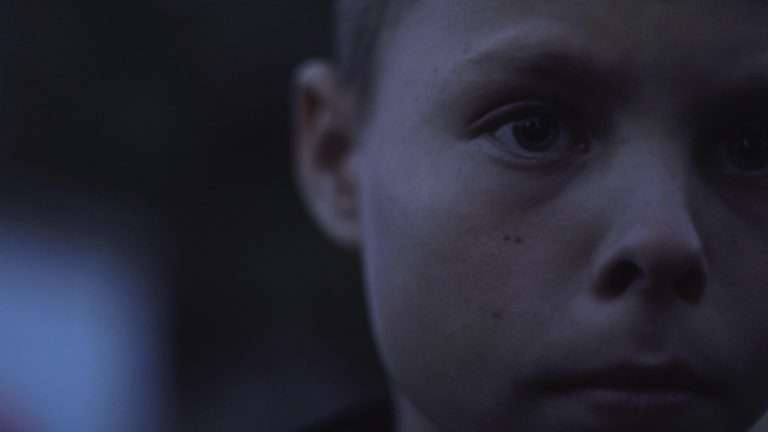5 Must-See Films with Powerful Female Leads at the 2024 MAMI Festival: The MAMI Film Festival 2024 will showcase a remarkable selection of thought-provoking films that transcend cultural and geographical boundaries. Among these, films such as Angammal, April, Riefenstahl, Armand, and Shambhala stand out for their distinct narratives and powerful cinematic vision. Each film delves into profound themes, from gender politics and societal expectations to the complexities of tradition and modernity, delivering compelling stories with nuanced performances and striking visuals. Audiences at MAMI 2024 can expect an immersive journey through diverse landscapes of human experience, with these films with female leads are sets to leave a lasting impression on the global cinematic conversation.
Angammal
Written and Directed by Vipin Radhakrishnan
Language: Tamil
Country: India
“Angammal” is a thought-provoking film that delves deeply into themes of social propriety, bodily autonomy, and rural-urban tensions, all while remaining grounded in the evocative world of Perumal Murugan’s storytelling. The character of Angammal is fascinating—a matriarch who defies the boundaries of societal expectations, rooted in her own understanding of life and desire.
The setup, with her son’s discomfort and his attempt to conform to modern notions of respectability, sets the stage for a compelling exploration of how tradition, modernity, and the body collide. Angammal’s defiance of the norms by simply being herself turns the ordinary into the extraordinary, creating a tension between the personal and the societal, the intimate and the communal.
The film also taps into the complexity of rural Tamil Nadu, where traditional practices might seem out of sync with modern, urbanized sensibilities, especially in the mid-90s when globalization and cultural changes were becoming more apparent. It’s a subtle yet powerful exploration of gender, body politics, and familial relationships.
Vipin Radhakrishnan’s choice to adapt this story is notable, especially considering his previous work with Ave Maria at the International Film Festival of Kerala. It suggests that Angammal will continue his interest in complex, layered narratives that engage with personal and cultural identity.
April
Written and Directed by Dea Kulumbegashvili
Language: Georgian
Country: Georgia
“April,” the piercing sophomore effort from Dea Kulumbegashvili, is set in a rural, conservative Georgian village and follows Nina, an obstetrician embroiled in accusations after the death of a newborn in her care.
Under the weight of scrutiny from the medical institution and a grieving father, Nina’s journey unravels into a fierce, unflinching portrait of a woman wrestling with guilt amidst the suffocating realities of illegal abortions and the fight for female autonomy. She stands defiant against a deeply patriarchal society that seeks to silence her.
Kulumbegashvili’s direction is uncompromising, her signature use of silence and sound paired with stark, sometimes brutal, yet hauntingly poetic imagery. She crafts an eerie, almost primal atmosphere, compelling the audience to confront Nina’s intense pain and struggle. The film immerses viewers in an experience that is both unsettling and profoundly moving.
“April” deepens the themes Kulumbegashvili first explored in her debut Beginning, solidifying her place as one of contemporary cinema’s most daring voices.
Riefenstahl
Written and Directed by Dea Kulumbegashvili
Language: German
Country: Germany
This documentary is a sharp and unflinching examination of Leni Riefenstahl, the notorious Nazi propaganda filmmaker behind Triumph of the Will and Olympia.
Through a meticulous curation of Riefenstahl’s archival footage, interviews, and unpublished memoirs, director Andres Veiel reveals her lifelong efforts to manipulate her legacy, attempting to distance herself from her role in Nazi propaganda while defending her artistic merits.
Steering clear of sensationalism, the film offers a comprehensive analysis of Riefenstahl’s self-crafted narratives, contrasting them with damning evidence. It explores how she blurred the line between art and complicity, using cinematic innovations to advance dangerous ideologies. Beyond scrutinizing Riefenstahl’s personal account, the documentary addresses critical questions of historical accountability, the seductive power of revisionism, and the ethical boundaries between art and politics, highlighting the unsettling relevance of her story in today’s climate of rising authoritarianism.
Armand
Written and Directed by Halfdan Ullmann Tøndel
Language: Norwegian
Country: Norway
Winner of the Camera d’Or for Best Debut Feature at Cannes, Armand by Halfdan Ullmann Tøndel is a gripping and unsettling film centered on Elizabeth (Renate Reinsve), a single mother whose 6-year-old son, Armand, is accused of inappropriate behavior with Jon, a fellow student at his elementary school. Despite the delicate nature of the plot, the film smartly shifts focus away from the children, delving instead into how the investigation by school authorities and the involvement of parents reveal the twisted games adults play, and how their complex relationships deeply impact impressionable young minds.
Tøndel, the grandson of cinematic icons Liv Ullman and Ingmar Bergman, masterfully navigates the human drama with elegance and subtlety, keeping the audience captivated by the story’s evolving twists. Renate Reinsve delivers a searing performance as the unconventional yet devoted mother, with a standout scene where she performs a frenzied “meltdown dance,” leaving a lasting impression.
Tøndel, who made his debut with the short film Bird Hearts (2015), which premiered at Karlovy Vary and won the Golden Chair Award at the Grimstad Short Film Festival, continues to impress with Armand, which had its world premiere in Un Certain Regard at Cannes in 2024.
Related to Female Lead Movies at 2024 MAMI: 25 Must-Watch Movies for MAMI Mumbai Film Festival 2024
Shambhala
Written and Directed by Min Bahadur Bham
Language: Nepalese
Country: Nepal
After her first husband, Tashi, disappears on the trade route to Lhasa, a newlywed and heavily pregnant Pema struggles to adjust to life in a polyandrous hamlet in Nepal. Pema goes out into the harsh wilderness in search of her unborn child as rumors about his legitimacy begin to circulate within the close-knit community. What starts off as a quest to find her spouse turns into a life-changing experience of self-realization and independence.
Director Min Bahadur Bham skilfully captures the rhythms of Nepalese life in this enormous yet intimate Himalayan narrative, fusing stunning widescreen images with profound cultural insight. The film presents a compelling, contemplative story while examining the conflict between the liberating potential of Buddhism and the repressive weight of Nepal’s patriarchal traditions. Cinematographer Aziz Zhambakiyev’s fluid camerawork is mesmerizing, elevating Bham’s assured vision in this sophomore effort. The journey to Shambhala—a place symbolizing paradise—is fraught with hardship, but rich with meaning. Among the best female lead movie at 2024 MAMI, this one is a must-see.
Filmmaker Min Bahadur Bham gained recognition with his short Bansulli (2012), Nepal’s first entry at the Venice IFF.



![A White, White Day (Hvítur, Hvítur Dagur) [2019]: ‘TIFF’ Review – A Cold Soul Longing for an Answer](https://79468c92.delivery.rocketcdn.me/wp-content/uploads/2019/09/A-White-White-Day-768x384.jpg)
![The Mortuary Collection [2020]: ‘Fantasia’ Review – Anthology of Horror Stories that take you by surprise](https://79468c92.delivery.rocketcdn.me/wp-content/uploads/2020/08/The-Mortuary-Collection-1-768x322.png)



